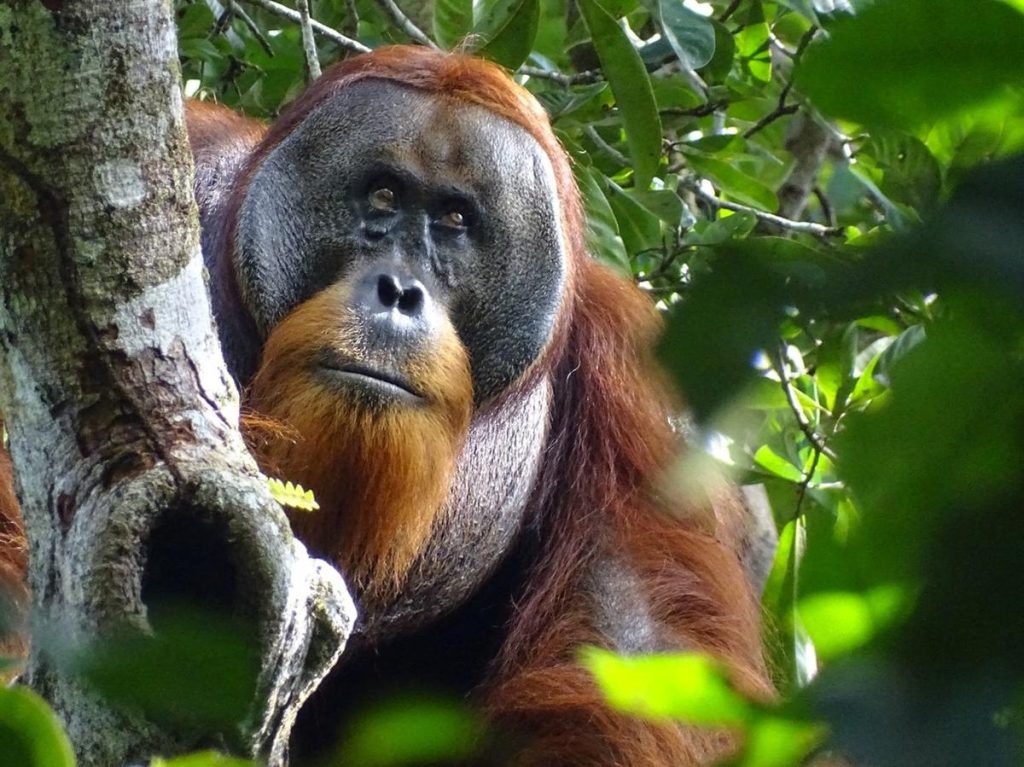Context:
A new study has documented the first instance of a non-human (Animal), a Sumatran orangutan named Rakus, using a medicinal plant to treat a facial wound.
Key Findings:
- A male orangutan, named Rakus, residing in Suaq Balimbing, Sumatra (Indonesia), was recently observed by scientists using a medicinal plant to treat a wound on his face.
- Rakus sustained a facial wound and selectively used leaves of the Akar Kuning plant (Fibraurea tinctoria) to treat it.
- The process involved chewing the leaves, applying the resulting juice to the wound, and covering it with the chewed leaves. The wound healed within five days.
- The plant is known for its analgesic and antipyretic properties and is frequently utilized in traditional medicine by local communities to address a range of ailments, including malaria.
- The chemical compounds in the Akar Kuning plant have antibacterial, anti-inflammatory, and antioxidant and other bioactive properties related to the process of wound healing.
- While self-medication in non-human species is not uncommon, Rakus’ intentional and repeated treatment of a wound with a biologically active substance is unprecedented.
- This behaviour suggests that wound treatment with plants may be a novel addition to the orangutan’s behaviour.
About Orangutans
IUCN status: Critically Endangered
Scientific name: Pongo
There are three species within the Pongo genus:
- Pongo pygmaeus (Bornean orangutan)
- Pongo abelii (Sumatran orangutan)
- Pongo tapanuliensis (Tapanuli orangutan)
They inhabit the rainforests of Borneo and Sumatra.
Characterized by their reddish-brown fur and long arms.
Highly intelligent and known to use tools in their daily activities.
Primarily frugivorous but also consumes leaves, bark, and insects.
Threatened by habitat loss due to deforestation, illegal hunting, and the illegal pet trade.
Orangutans are one of the extant (Living i.e. not extinct) species of great apes, along with the Common Chimpanzee, Gorilla, and Bonobo.
Significance of the Study:
- This discovery sheds light on the power of cognition behaviour in animals, particularly practices related to self-medication in non-human species.
- It raises questions about the evolutionary origins of human medical practices.
- It highlights the importance of biodiversity conservation, as medicinal plants used by animals can potentially benefit human health research.
The Human Connection:
- The earliest human records of wound care practices date back to 2200 BCE (Before Common Era)
- Scientists suggest that self-medication of wound treatment is not exclusive to humans, as the great apes are known to ingest specific plants to treat parasite infection.
- It indicates a possible common underlying mechanism for recognizing and applying substances with medical properties.

